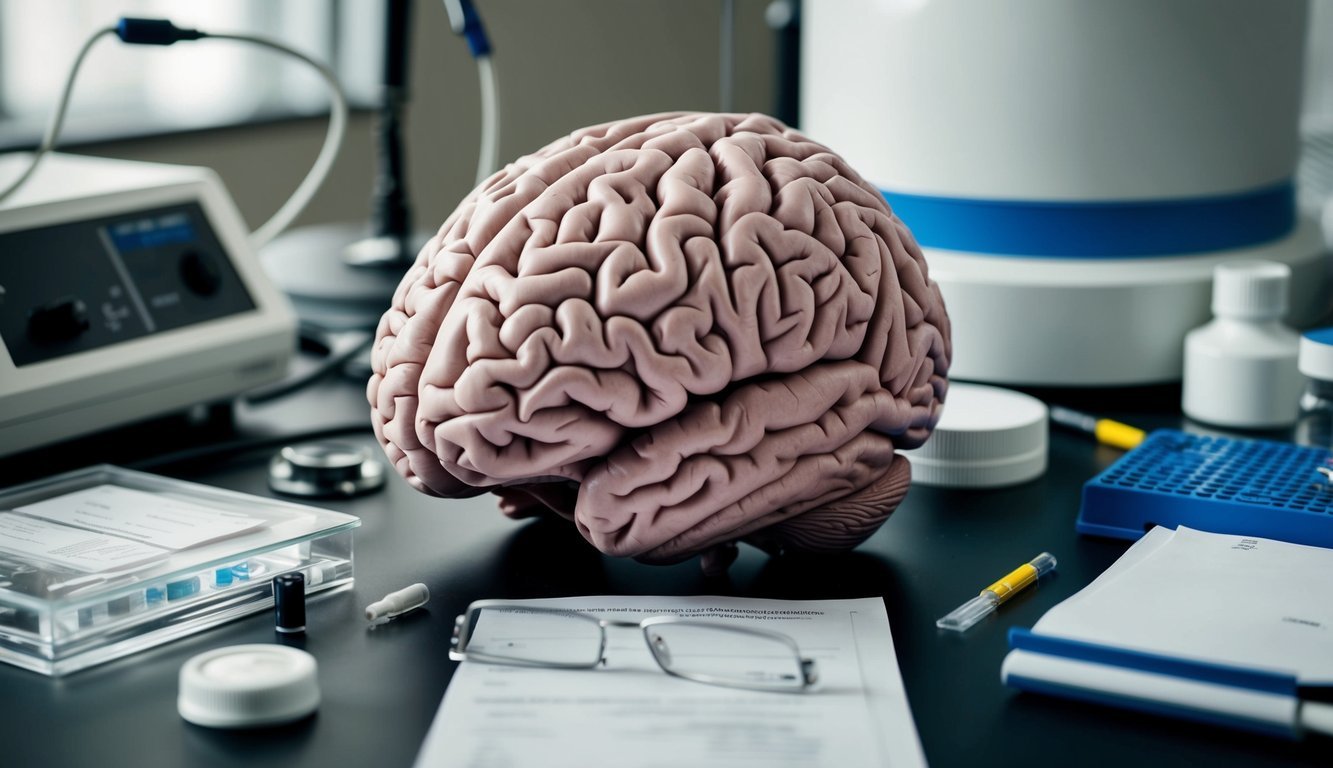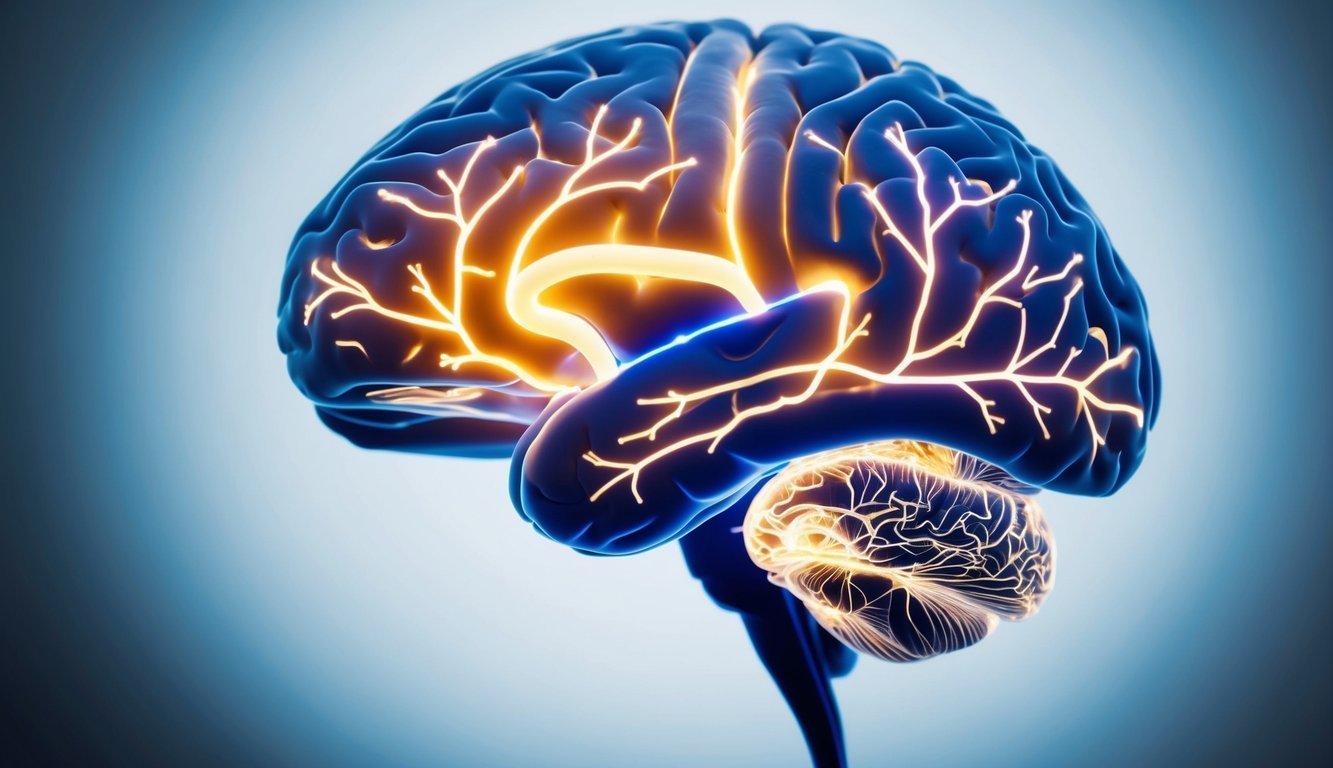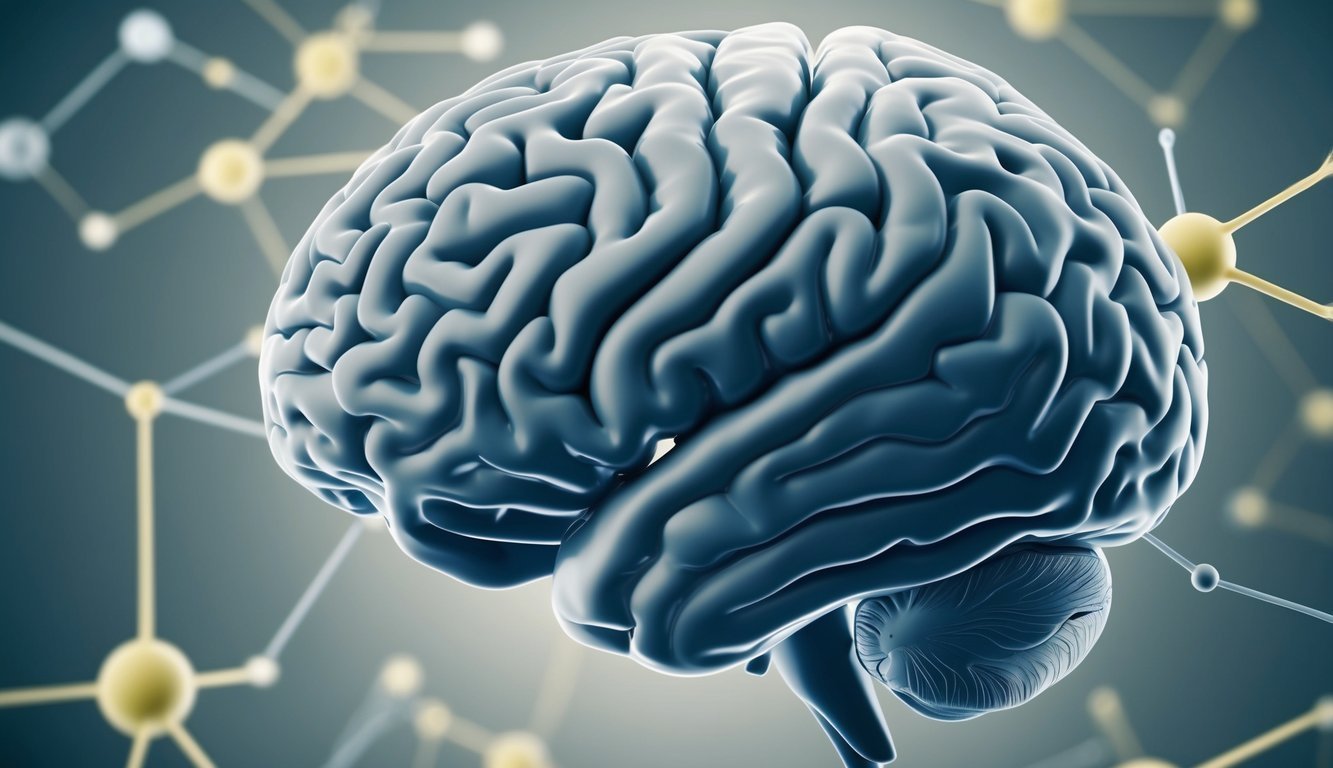PsychNewsDaily Publishers
100 Summit Drive
Burlington, MA, 01803
Telephone: (320) 349-2484
PsychNewsDaily Publishers
100 Summit Drive
Burlington, MA, 01803
Telephone: (320) 349-2484

Neuropsychology is a scientific field dedicated to examining the complex connections between brain activity and behavior. It merges insights from neuroscience, psychology, and cognitive science to comprehend how the nervous system impacts cognitive processes and behavioral patterns.
Neuropsychology focuses on the study of the relationships between brain activity and behavior. It investigates how the structure and functionality of the nervous system affect emotional states, cognitive abilities, and actions.
The field covers a range of areas, including:
• Cognitive function assessment
• Diagnosis of neurological conditions
• Rehabilitation for individuals with brain injuries
• Research into brain-behavior correlations
Neuropsychologists employ varied techniques to explore these relationships, such as:
Their efforts enhance our understanding of both typical cognitive functioning and the effects that brain disorders have on mental processes and behavior.
The origins of neuropsychology can be traced back to early explorations of brain function and behavior. Significant milestones include:
1861: Paul Broca’s identification of the brain’s language center
1874: Carl Wernicke’s discovery of a region integral to language comprehension
1950s: Creation of neuropsychological assessments by pioneers like Alexander Luria
Neuropsychology began to emerge as a distinct discipline in the mid-20th century, with the establishment of dedicated journals and professional organizations reinforcing its unique identity.
Recent advancements in neuroimaging and cognitive neuroscience have had a profound effect on neuropsychology’s evolution, enabling more precise mapping of brain functions and providing deeper insights into the neural underpinnings of cognition and behavior.

The neurological basis of behavior involves complex interactions within the brain that shape cognitive functions and affect how individuals perceive and react to their surroundings.
The organization of the brain is crucial to behavior. The cerebral cortex is divided into left and right hemispheres, containing four principal lobes: frontal, parietal, temporal, and occipital. Each lobe supports specific functions.
The frontal lobe is responsible for executive functions, decision-making, and personality traits. The parietal lobe deals with sensory processing and awareness of spatial orientation. The temporal lobe is engaged in memory and language processing, while the occipital lobe is dedicated to visual perception.
Neurologists investigate the interactions between these brain areas and their role in behavior. Damage to particular regions can lead to identifiable behavioral changes, contributing to the understanding of the brain-behavior dynamic.
Cognitive functions are governed by intricate neural networks. For instance, attention engages several brain areas that work in harmony. The prefrontal cortex, parietal lobe, and thalamus form a network that enables individuals to concentrate on relevant stimuli.
Memory formation and retrieval rely heavily on the hippocampus and its associated structures. The process of long-term potentiation, which strengthens synaptic connections, is fundamental to learning and memory consolidation.
Language processing involves Broca’s and Wernicke’s areas, primarily located in the left hemisphere of most individuals. Together, these regions enable the comprehension and production of language.

Clinical neuropsychology focuses on understanding brain-behavior relationships for diagnosing and addressing cognitive, behavioral, and emotional challenges that arise from neurological conditions. This discipline blends neuroscience, psychological principles, and clinical practices to evaluate and rehabilitate patients suffering from brain disorders.
Clinical neuropsychologists play an essential role in assessing and treating individuals with neurological issues. They operate in various environments, including hospitals, rehabilitation facilities, and private practices.
These specialists assess cognitive functions such as memory, attention, and problem-solving abilities, as well as emotional and behavioral changes resulting from brain injuries or disorders.
Working alongside other healthcare professionals, clinical neuropsychologists devise comprehensive treatment plans. Their expertise is crucial in diagnosing conditions like dementia, stroke, and traumatic brain injuries.
Neuropsychological evaluation consists of a set of standardized assessments aimed at gauging cognitive capabilities and brain function. These assessments cover:
The outcomes help in identifying cognitive strengths and weaknesses, shaping treatment approaches.
Interventions might involve cognitive rehabilitation exercises, compensatory techniques, and psychotherapy.
For individuals with brain injuries, neuropsychologists create tailored rehabilitation programs designed to enhance cognitive functioning and daily living skills.
In dementia cases, they assist with early diagnosis and provide support for both patients and caregivers. Clinical neuropsychologists also contribute to research, enhancing comprehension of brain-behavior dynamics.

Neuropsychology investigates a variety of cognitive and behavioral disorders that affect brain function and mental operations. These conditions can profoundly impact an individual’s daily activities, social relationships, and overall health.
Neurodegenerative disorders lead to progressive damage to brain cells, resulting in cognitive decline. Alzheimer’s disease, the most prevalent form of dementia, impairs memory, thought processes, and behavior. Initial symptoms often include mild forgetfulness that can escalate to severe cognitive dysfunction.
Parkinson’s disease primarily affects motor skills, but may also induce cognitive shifts, including problems with attention, planning, and problem-solving. Other neurodegenerative diseases encompass Huntington’s disease and amyotrophic lateral sclerosis (ALS).
Early identification and intervention are vital for managing these disorders. Treatment typically consists of a mixture of medications, cognitive training, and lifestyle adjustments.
Acquired brain injuries commonly result from traumatic brain injury (TBI) and stroke. TBI may occur due to falls, accidents, or sports-related traumas, with symptoms varying based on injury severity and location.
Mild TBIs can cause transient confusion and headaches, while more severe injuries may lead to long-lasting cognitive issues, personality modifications, and motor impairments. A stroke occurs when blood flow to the brain is disrupted, damaging brain tissue.
Recovery from acquired brain injuries often necessitates a team-based approach, including physical therapy, cognitive rehabilitation, and speech therapy. Neuroplasticity plays a crucial role in the brain’s capacity to recover and adapt capabilities.
Autism spectrum disorder (ASD) is characterized by difficulties in social interactions, communication, and repetitive behaviors. Individuals diagnosed with ASD may exhibit distinct cognitive strengths and challenges.
Attention-deficit/hyperactivity disorder (ADHD) influences attention, impulse regulation, and activity levels, affecting academic outcomes and social interactions. Specific learning disorders, such as dyslexia, hinder the acquisition and application of academic skills.
Timely intervention is critical for developmental disorders. Treatment strategies often entail behavioral therapies, educational assistance, and occasionally medication. Customized approaches aid individuals in developing coping mechanisms and achieving their full potential.
Neuropsychological research employs a wide range of methods to investigate the connections between brain activity and behavior. These methodologies include controlled experiments and detailed case studies, providing complementary perspectives on cognitive function and neural processes.
Experimental neuropsychology utilizes controlled studies to explore the links between brain function and behavior. Researchers design tasks to evaluate specific cognitive processes, often comparing healthy subjects with individuals facing neurological challenges.
The research in cognitive neuropsychology often includes standardized assessments and neuroimaging technologies to identify the neural correlates associated with cognitive activities.
Notable experimental techniques involve:
Findings from these investigations enhance models of brain organization and cognitive structures. Furthermore, they contribute to clinical practices by improving diagnostic tools and therapeutic approaches.
Case studies facilitate in-depth explorations of individuals with brain injuries or neurological disorders. This methodology yields significant insights into rare conditions and specific manifestations of cognitive impairments.
Neuropsychologists apply various evaluation techniques to assess patients’ cognitive skills, including:
These comprehensive examinations enable researchers to discern how different brain areas are associated with cognitive functions.
Historically, case studies have led to pivotal advancements in neuropsychology, such as the identification of specialized language regions.
Even though case studies may lack the statistical strength of larger experiments, they offer rich contextual data that often informs hypothesis generation for future experimental inquiries.
Neuropsychology merges clinical expertise with neuroscientific concepts to assess and treat cognitive, behavioral, and emotional challenges connected to brain functionality. Practitioners in this area necessitate specialized education and adherence to strict ethical standards.
Becoming a neuropsychologist requires comprehensive education and training. The journey typically begins with earning a bachelor’s degree in psychology or a relevant field.
Aspirants then pursue a doctoral degree in neuropsychology or clinical psychology with a neuropsychology specialization.
Doctoral programs usually take 5-7 years to complete and encompass coursework in neuroscience, cognitive psychology, and evaluation methods. Clinical internships provide practical experience in patient care.
Upon obtaining a Ph.D. or Psy.D., candidates enter a two-year postdoctoral fellowship in neuropsychology. This focused training emphasizes neuropsychological evaluation, diagnosis, and treatment planning.
Licensing requirements differ by region but generally involve passing the Examination for Professional Practice in Psychology (EPPP). Board certification from the American Board of Clinical Neuropsychology signifies advanced proficiency.
Neuropsychologists encounter a range of ethical challenges in their work. They must ensure patient confidentiality and secure informed consent prior to assessments and interventions.
Cultural awareness is essential when engaging with diverse groups. Neuropsychologists need to recognize how cultural variables might influence test outcomes and interpretations, opting for culturally relevant evaluation tools when feasible.
Efforts toward inclusivity in neuropsychology seek to enhance practitioner diversity and improve service access for marginalized populations. This initiative involves crafting culturally attuned assessment methodologies and advocating for equitable healthcare policies.
Neuropsychologists frequently collaborate with various professionals, including neurologists, psychiatrists, and medical practitioners. In these interdisciplinary contexts, effective communication and respect for professional roles are fundamental.
Ongoing education is crucial for staying abreast of breakthroughs in neuroscience and assessment methods. Adhering to ethical practices necessitates continuous professional growth and self-evaluation.
“`